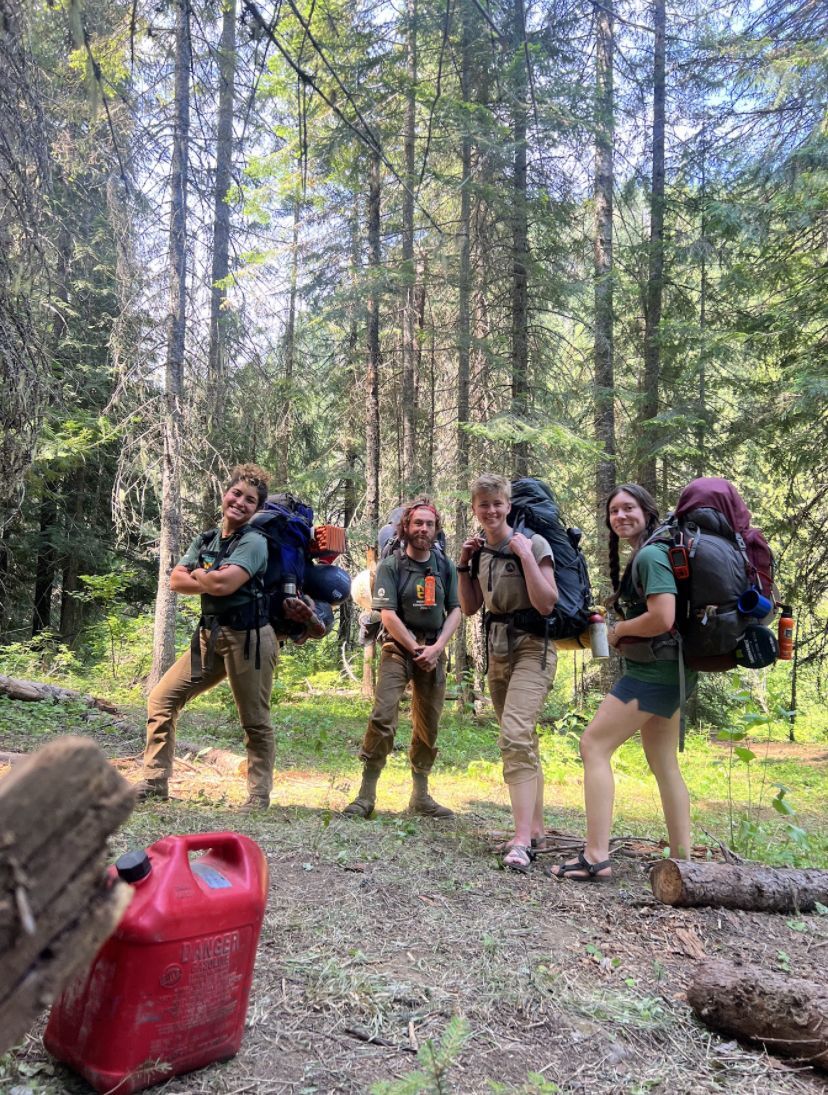
Being a member of MCC, people, especially my mom, have always found it baffling to know my crew has been stationed in Idaho for the whole summer season.
“If you’re a part of MCC, MONTANA Conservation Corp, why do you basically live in Idaho?”
My favorite answer to that question is, “Why not?” Because honestly, I don’t know the answer and that is also why I love conservation work. Often the work is chaotically unpredictable and exciting and complicated. Think you’re going on your first big dawg backcountry trip without pack support? Think again. Front country. Rig. Bam surprise. It’s been hot and dry for the last few weeks and you don’t think you need your rain gear? Doublethink again. It rains for the last three days of the hitch.
Although some people would say the constant unpredictable nature of life on the trails is exhausting, I have found it to be quite fun and fulfilling. But that is just my experience this season!
On our last hitch to St. Joe’s, we came into the week thinking we would be doing more brushing, like many weeks before. After talking to our project partners, we were surprised to know we would be doing a reroute of a steep trail and adding in a culvert over a stream to create a walkway for pack animals and hikers alike. Besides one of our leaders, none of us had ever built a culvert before. The concept seemed simple and frankly quite primitive at first: find big rocks. Put big rocks together. Rocks turn to bridge. Animals now walk…well, that actually wasn’t how it was at all. Instead, building a culvert required us to think of how we could puzzle rocks together in order to form a bridge that wouldn’t move under pressure and also wouldn’t prevent the stream from flowing.
After brushing bushes and tall plants for three weeks, you naturally begin to develop a caveman-esque mindset toward the surroundings around you: “If plant touch shoulder, it must be cut. Plant touch not good, destroy.” Needless to say, our reroute project and culvert was a great change in pace that brought me back to an “Industrial Revolution” mindset. When the culvert was finished and we were able to walk successfully over it. I felt like we completed one of humanity’s greatest accomplishments. The feeling was probably not far off from what that dude that created the wheel felt like. It was our eureka moment.
Although conservation work offers many valuable lessons, realizing that the early pioneers that shaped our world today have not disappeared into history has been one of them. They could not possibly disappear when they still exist and live here in Montana and Idaho and all over MCC. When trails flood and brush takes over, we have found ways and continue to find new ones to positively change the land around us. While we may not exactly be like the early homesteaders of the past, our ability to make something out of nothing and to work through an uncertain future makes our resemblance undeniably striking.

![[Image Description: Two MCC members taking a brief break; one is sitting on a rock, the other is standing nearby. They are both in their uniforms, looking out at the expansive, mountain view surrounding them.]](https://cdn.firespring.com/images/c3f85e97-43a9-4810-8081-e8e6338173d0.jpeg)



